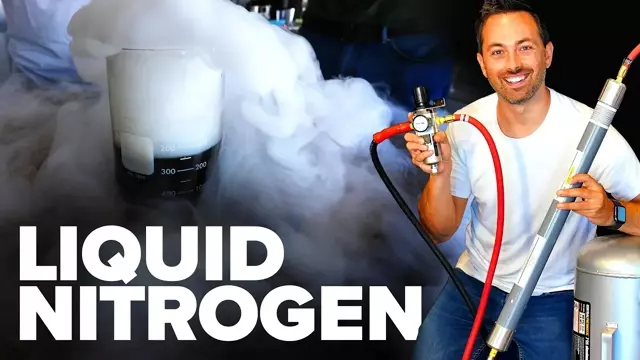2019-08-16
[public] 6.64M views, 108K likes, 3.48K dislikes audio only
I used a nitrogen membrane and Stirling cryocooler to liquefy nitrogen out of the air. For this video I partnered with Starbucks to celebrate their Nitro Cold Brew. Order one here: https://starbucks.app.link/derekmuller
Making liquid nitrogen is hard - in fact up until 150 years ago scientists doubted whether it was even possible to liquefy nitrogen. In 1823, At the royal institution in London, Michael Faraday first produced liquid chlorine, kind of accidentally by putting it under high pressure. He similarly liquefied ammonia.
Borrowing a mixture from Thilorier in France, a combination of dry ice, snow and ether, he reached a temperature of -110C. By 1845 he used this mixture plus a hand pump to pressurize gases to liquefy all the known gases except six, which included oxygen and nitrogen. These became known as the “permanent” gases.
A French Physicist Aimé compressed oxygen and nitrogen in tanks and then lowered them into the ocean over 1.6km deep, where the pressure got up to 200 atmospheres. Still the gases didn’t liquefy.
Only at the end of 1877 were the first droplets of liquid oxygen and liquid nitrogen produced, by Cailletet in France. He first tried oxygen by compressing it up to 300 atmospheres, cooled to -30C, but that wasn't even enough to liquefy oxygen. But when he suddenly released the pressure, the expanding gas cooled, he estimated to -200C and he saw a mist and then droplets slide down the walls of his vessel.
It's amazing how far we've come in that now I can purchase a helium-based cryocooler. It compresses and expands the gas to absorb heat from the tip of the cold finger and eject it into the surroundings at ambient temperature.
/youtube/video/dCXkaQa53QQ?t=39
/youtube/video/dCXkaQa53QQ?t=95
/youtube/video/dCXkaQa53QQ?t=278
/youtube/video/dCXkaQa53QQ?t=394
/youtube/video/dCXkaQa53QQ?t=718
/youtube/channel/UCHnyfMqiRRG1u-2MsSQLbXA
/youtube/video/rmxh8Nty_eo
/youtube/video/vS0TuIPoeBs
/youtube/video/rM04U5BO3Ug

